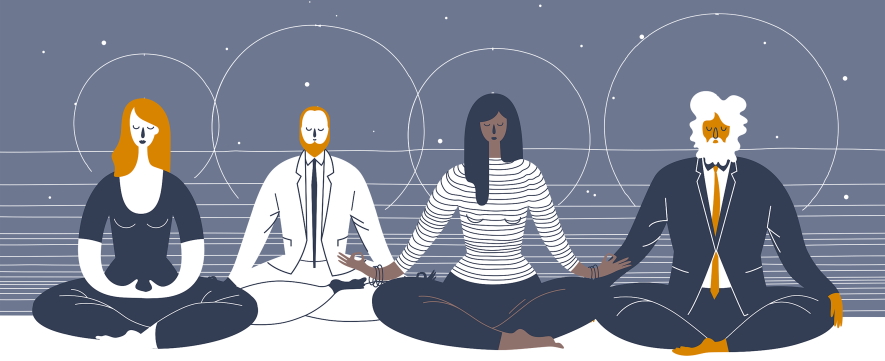Meditation is the practice of teaching your mind to focus and redirect your thoughts regularly. Meditation’s popularity is growing as more individuals become aware of its numerous health advantages. It can help you become more aware of yourself and your environment. Many individuals regard it as a means of reducing stress and improving concentration. People also utilize it to cultivate other desirable behaviours and sentiments, such as a positive attitude and outlook, self-discipline, healthy sleep patterns, and even enhanced pain tolerance.
- Stress is lessened.
One of the most common reasons with science-based benefits of meditation individuals practice meditation is to relieve stress. Meditation lives up to its stress-relieving reputation. The stress hormone cortisol is normally elevated in response to mental and physical stress. Many of the negative effects of stress are caused by this, such as releasing inflammatory molecules called cytokines. These side effects can include sleep disturbances, induce melancholy and anxiety, raise blood pressure, and cause exhaustion and foggy thinking.

- Anxiety is reduced.
Meditation can help you feel less anxious by lowering your stress levels. Eight weeks of mindfulness meditation reduced anxiety symptoms, increased positive self-statements, and improved stress reactivity and coping in patients with generalized anxiety disorder. Over a year, people with chronic pain who completed an 8-week meditation program saw considerable improvements in despair, anxiety, and pain.
- Enhances emotional well-being
Some types of meditation can help you feel better about yourself and have a more optimistic attitude on life. Depression symptoms were reduced when people practised mindfulness meditation. Compared to a control group, people who completed a meditation exercise had fewer negative thoughts in reaction to seeing negative imagery.

- Self-awareness is improved.
Some types of meditation can help you have a better understanding of yourself and become your best self. Self-inquiry meditation, for example, is designed to help you gain a better understanding of yourself and how you interact with others. Other types educate you to spot dangerous or self-defeating ideas. The idea is that as you become more conscious of your thought patterns, you may retrain them to be more constructive.
- Increases attention span
Meditation can improve your mental health with focused attention is similar to weight lifting for your attention span. It aids in the development of attention strength and endurance. Mindfulness meditation may ease anxiety. People who listened to a meditation CD, for example, had better attention and accuracy while performing a task than those in a control group. Meditation can help you develop more creative problem-solving abilities.
